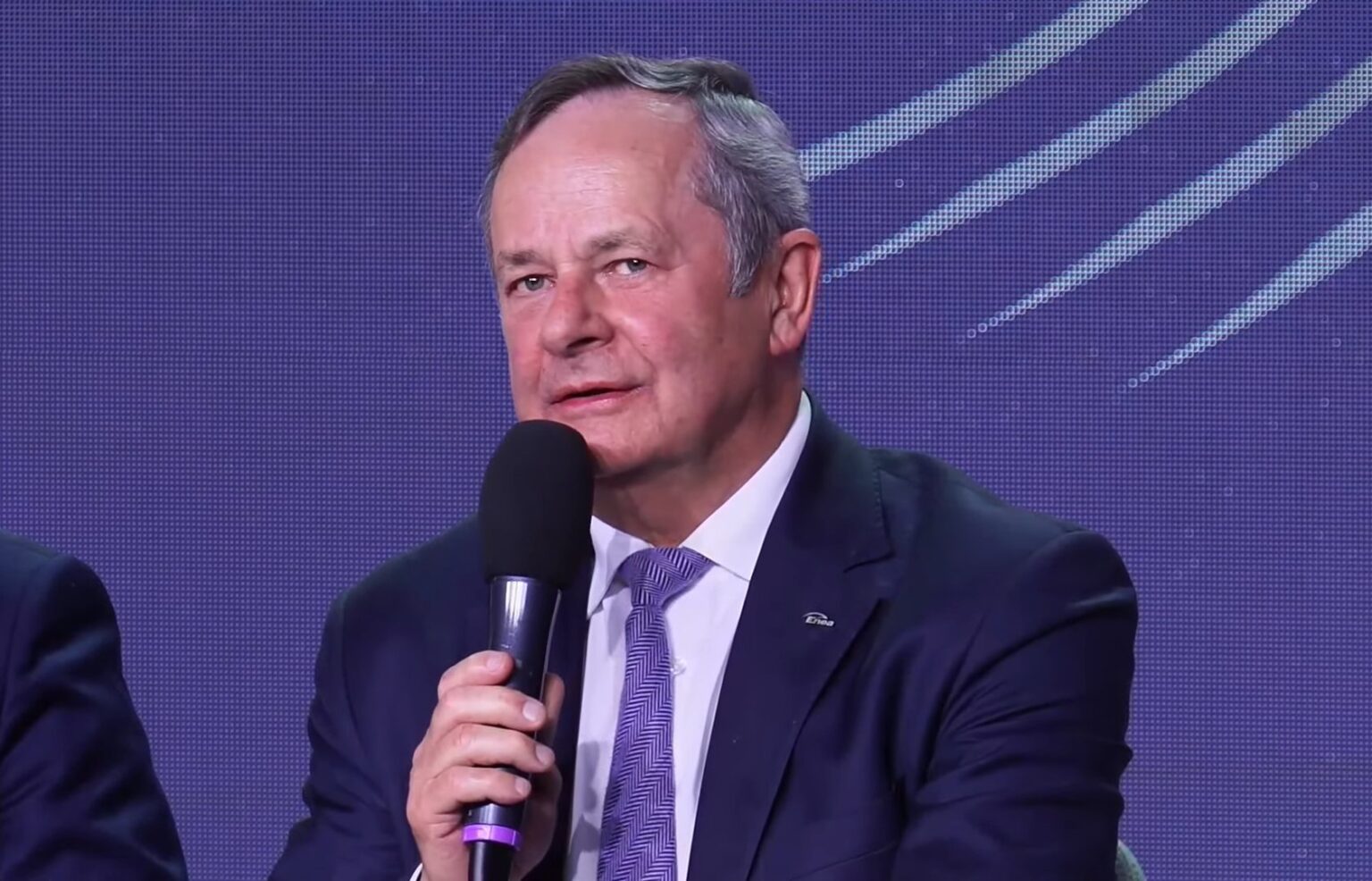Enea is interested in SMRs, energy storage and green hydrogen
During the 11th National Energy Summit, one of the main topics was the challenges related to the transformation of national energy companies.
The conference was attended by Lech Żak, Enea Vice-President for Strategy, who talked about the Group’s transition.
„As part of Enea’s transformation, we are reviewing technologies relevant to the future of the energy industry, including SMR technology, which we are keenly interested in. We are also working on projects related to energy storage and green hydrogen,” said Vice-President Żak.
„We are also carrying out a project to build a modern gas power plant in Kozienice using CCGT technology. The plant is designed to replace coal-fired power. We hope that this will allow us to balance the unstable renewables in the system,” he added.
Vice-President Žak also raised the issue of the Group joining the National Energy Security Agency (NABE).
„Once NABE is created, the Enea Group will make renewables its foundation. We have a portfolio of planned res investments, in line with our Group’s strategy. Of course, the transformation will require appropriate investments,” he noted.
Jacek Perzyński
Turnover is up, the number of transactions and the average price of gas on the Polish exchange are down
The Polish Power Exchange (TGE) has revealed a record-breaking gas turnover on the futures market in the first 5 months of 2023.
Trade in natural gas on the TGE futures market reached 50 TWh and was the highest in history, breaking the previous record from the same period in 2021.
Despite this, the number of gas transactions on TGE in May 2023 decreased to 9,527,163 MWh, or by 22 percent. The average price based on the volume of gas traded on the day ahead market amounted to PLN 158.60 per megawatt-hour, which means it dropped by PLN 63.68 per megawatt-hour. The price of futures contracts with delivery in 2024 also fell and amounted to PLN 256.95 per megawatt-hour in May, or PLN 35.38 less than in April of this year.
Polish Power Exchange / Wojciech Jakóbik
Baltic states may accelerate energy divorce from the Soviets
Electricity systems operate at a certain frequency. The grids in Baltic states were synchronized with the post-Soviet BRELL area along with Belarus and Russia. The countires planning to synchronize with the continental system through Poland. It was supposed to happen in 2025, but concerns about energy security in the face of Russia’s invasion of Ukraine are accelerating the plans.
Lithuania has already carried out insulation tests against the BRELL system. Synchronizing with the European system will mean disconnecting from the post-Soviet one at the same time. However, there is a risk that the Russians themselves will disconnect the Baltic states from the post-Soviet system, blocking the flow of energy overnight.
The prime ministers of the Baltic states met in mid-May in Tallinn to discuss a plan to synchronize the electricity grids in the face of speculation about the difference of opinion between them. „We have direct experience, unfortunately, of how Russia uses energy as a weapon,” Lithuanian Prime Minister Ingrida Simonyte said at the time. „This winter we have seen Russia’s systematic attempts to destroy Ukraine’s energy infrastructure, so we cannot ignore the slightest possibility that Russia will also abuse our dependence on the electricity grid at the most critical moment,” she said.
However, she admitted that while the Baltic states agreed on the very goal of synchronization, „the devil was in the details.” It is expected that the results of technical tests will be revealed in June. This will make it possible to tell when departing from BRELL will be possible. Lithuanians maintain that this could happen as early as in 2024. The 2018 agreement between the leaders of the Baltic states and the European Commission sets a deadline at the end of 2025.
Synchronization is to take place with the help of Poland and the existing electricity connection on its border with Lithuania – LitPol Link. The New Harmony Link, scheduled for 2025, has been delayed due to rising costs in an age of inflation and extended contract lead times due to supply chain strains, which BiznesAlert.pl has informed about previously.
LRT / Wojciech Jakóbik









